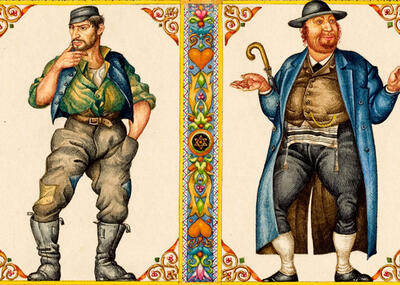Out of Egypt: A Last Passover in Alexandria
André Aciman
1994
Despite the frantic packing and last-minute sale of all the furniture, my mother, my grandmother, and Aunt Elsa had decided we should hold a Passover seder on the eve of our departure. For this occasion, two giant candelabra would be brought in from the living room, and it was decided that the old sculptured candles should be used as well. No point…
Aciman’s memoir chronicles the forced departure of Sephardic Jews who had called the cosmopolitan city of Alexandria, Egypt, home for hundreds of years. Unlike the European experience of persecution, which anchors the historical memory of American Jews, the story of the modern exodus from Egypt has a much more direct connection to the biblical narrative. The family debates whether and how to celebrate the Israelites’ joyous departure from Egypt while they prepare to leave their homeland for exile. The memoir captures the family's tension between feeling deeply at home in non-Jewish societies and remaining aware of their potentially precarious position as outsiders.
Aciman notes that Abdou, the family’s presumably Muslim chef, “knew exactly what to prepare for the seder.” What does this suggest about the relationship between Jews and Muslims in Alexandria?
Aciman tells Aunt Elsa, “I don’t want to cross the Red Sea. And I don’t want to be in Jerusalem next year.” What does this tell you about the author’s attitude toward Jewish life in the diaspora?
How might this narrative differ if a similar story were told by a family that ended up emigrating to the recently founded State of Israel?
Creator Bio
André Aciman
Born in Alexandria, Egypt, André Aciman spent his late childhood years in Italy and France. Specializing in sixteenth- and seventeenth-century European literature, he is a professor of comparative literature at The Graduate Center of the City University of New York. Aciman’s works explore the themes of identity, home, and exile.
You may also like

Passover across Jewish Time and Space
Passover is the most celebrated holiday for American Jews. Yet, few appreciate the historical evolution and diversity of its key themes and messages.


